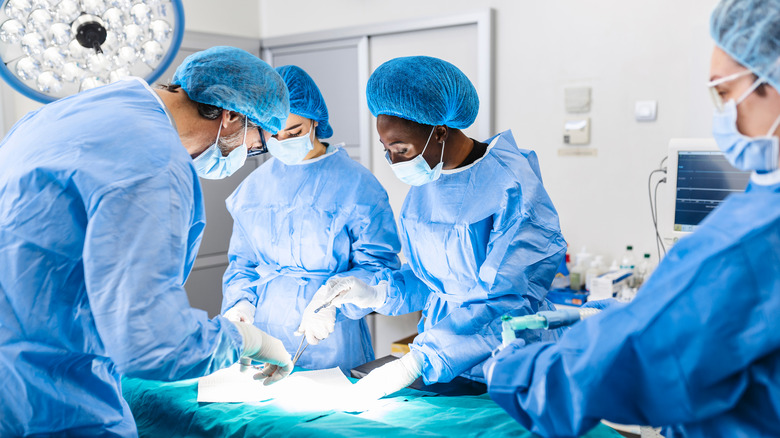A Cosmetic Surgeon Shares 4 Things You Should Never Do Before Getting Plastic Surgery
When preparing for plastic surgery, there are a number of things patients are advised to do — and not to do — in the weeks prior to the procedure. By adhering to your surgeon's instructions, you can help the surgery go both safely and smoothly. In an exclusive Health Digest interview, Andrius Pajeda, plastic and reconstructive surgeon at Nordesthetics, a leading international medical center in Kaunas, Lithuania, shares four of the most important things to avoid prior to getting plastic surgery.
"In preparation for a plastic surgery, people should avoid extreme fasting, taking food supplements that contain garlic, and smoking," says Dr. Pajeda. He emphasizes smoking in particular, stating, "Smokers should quit at least three weeks before the surgery while those who have been smoking for over ten years, are advised to quit the habit as soon as possible." Dr. Pajeda goes on to explain that these three things can't always be readily detected in routine blood tests, which could pose potential issues for both the patient and surgeon during surgery.
He then shares his fourth tip, stating that people should not continue use of birth control. "People should stop taking contraceptive pills at least four weeks before the surgery," Dr. Pajeda states. "Hormonal spirals and implants must be removed completely, and hormone replacement therapy (HRT) should be discontinued at least two weeks before surgery."
Why these tips are important
Delving into deeper detail, Dr. Pajeda tells Health Digest that fasting can leave one susceptible to malnutrition and slow the wound healing process. He then goes on to further address supplements and smoking, stating, "Garlic food supplements may lead to extensive bleeding, and smoking can trigger infection and cause tissue necrosis because too little blood flows to the tissue." Ultimately, Dr. Pajeda explains that this can cause the patient to develop health issues, as can contraceptive usage. "Using any type of contraceptives increases the risk of developing deep vein thrombosis (DVT) or getting a blood clot," he says. "Since general anesthesia also increases this risk, it is important to discontinue hormonal medications before the surgery."
In order to help ensure a safe and speedy recovery, Dr. Pajeda encourages regular physical activity and eating healthy, well-rounded meals. He concludes by offering guidelines as to when patients should stop any of the four mentioned habits. "We recommend avoiding the said habits or medications four [to] six weeks before the surgery," he states.
To find out more about Dr. Pajeda's work, visit Nordesthetics.com or connect with their clinic on Facebook or Instagram.


